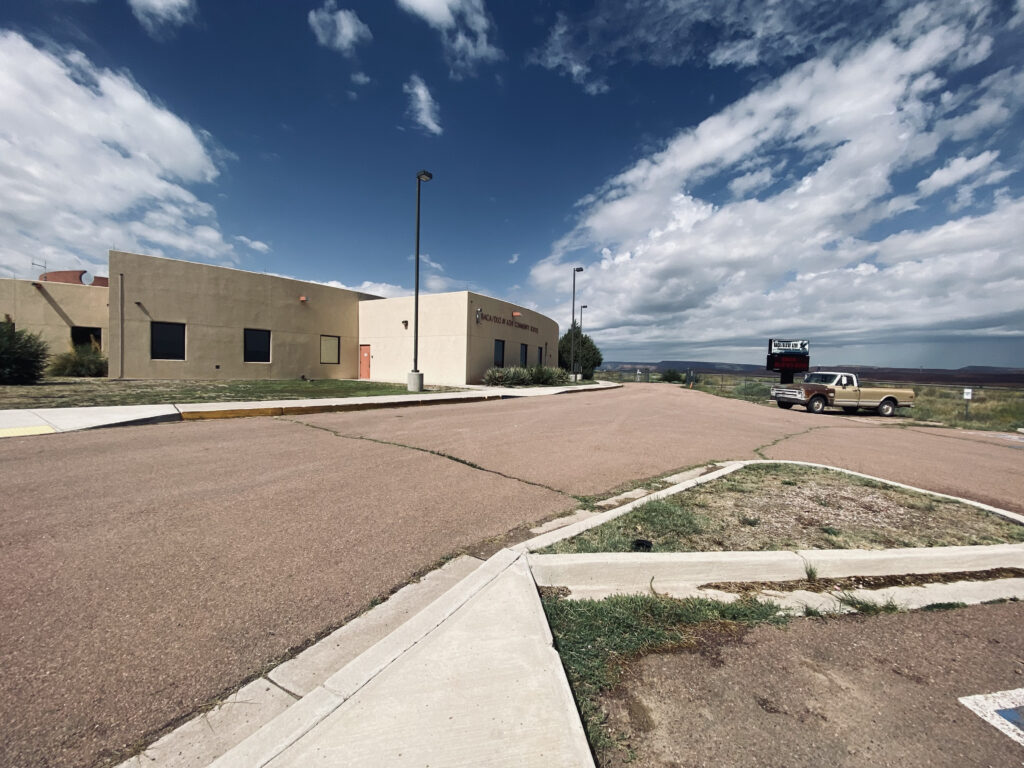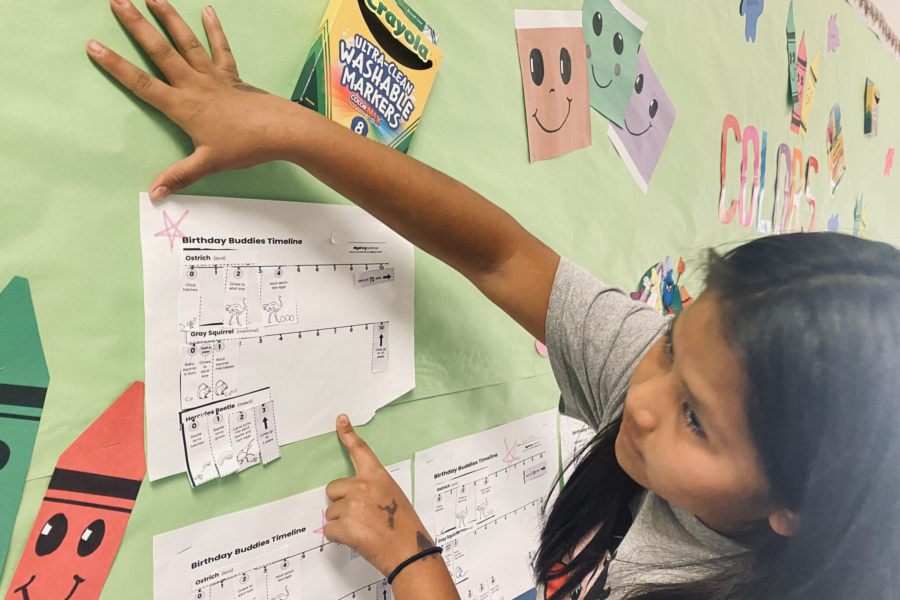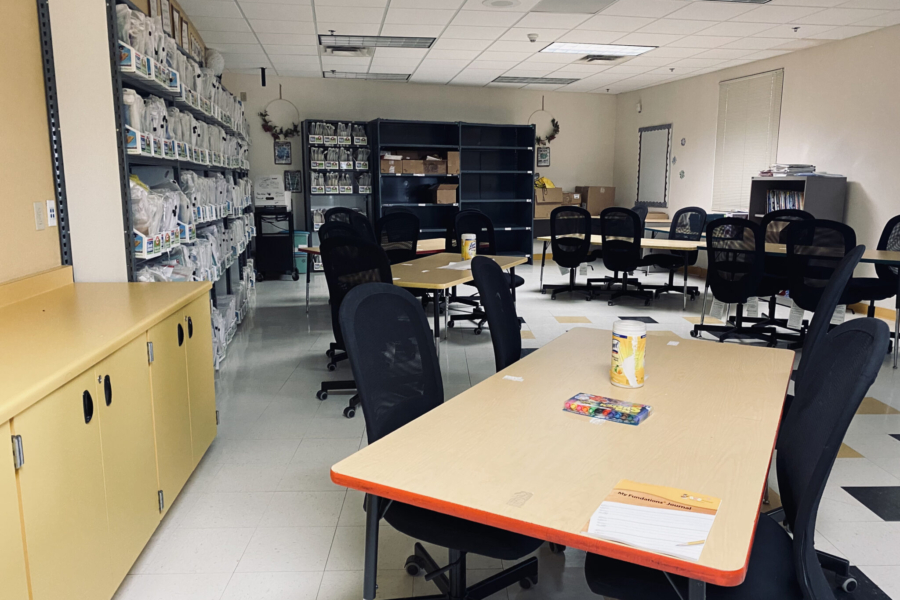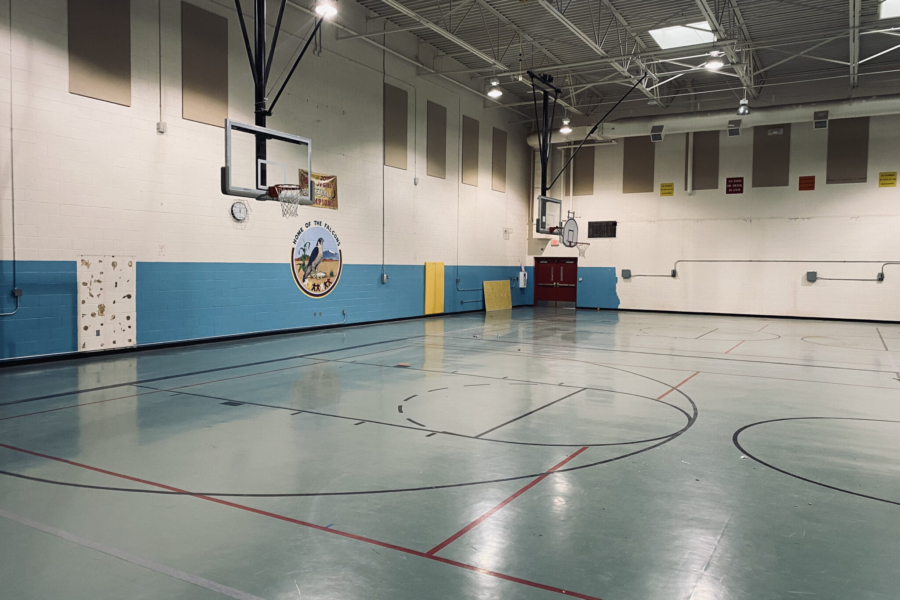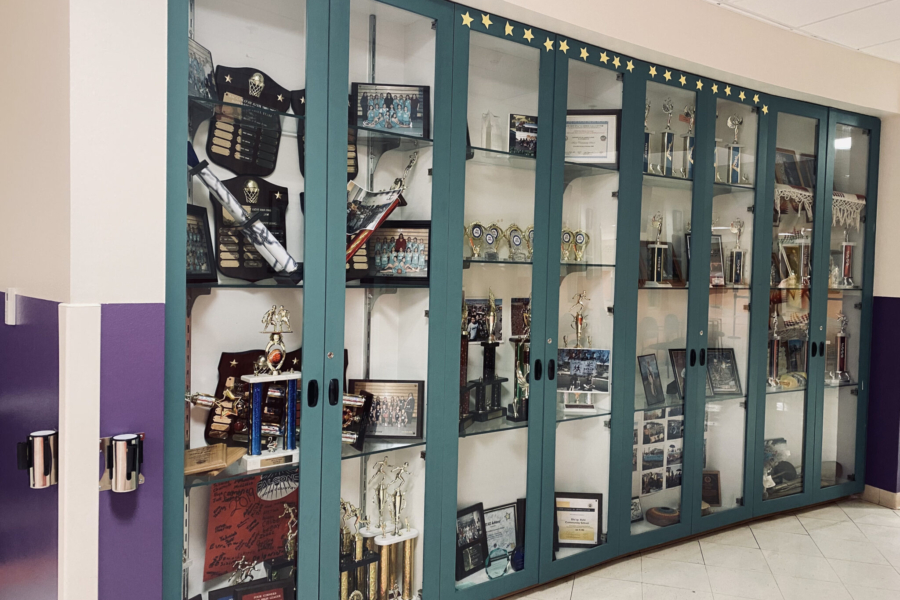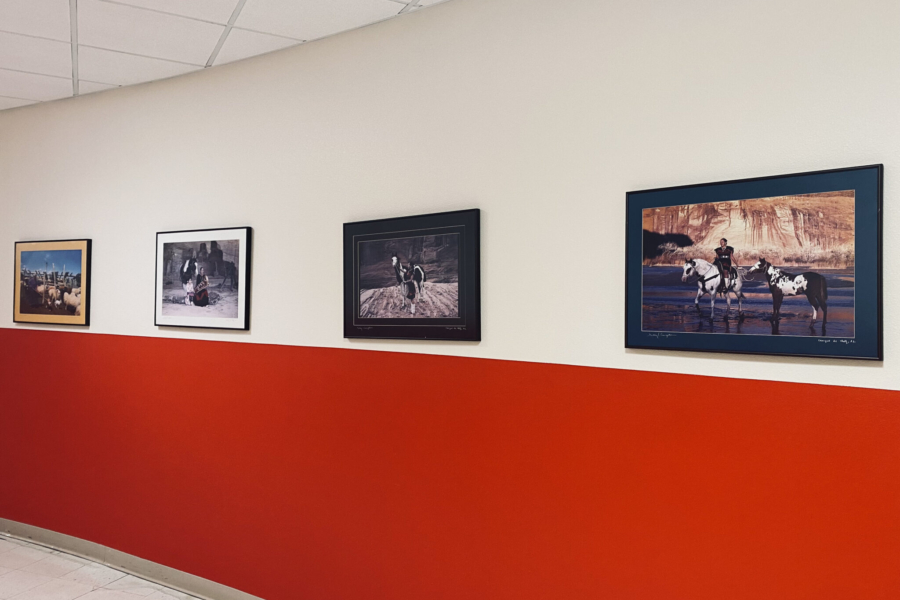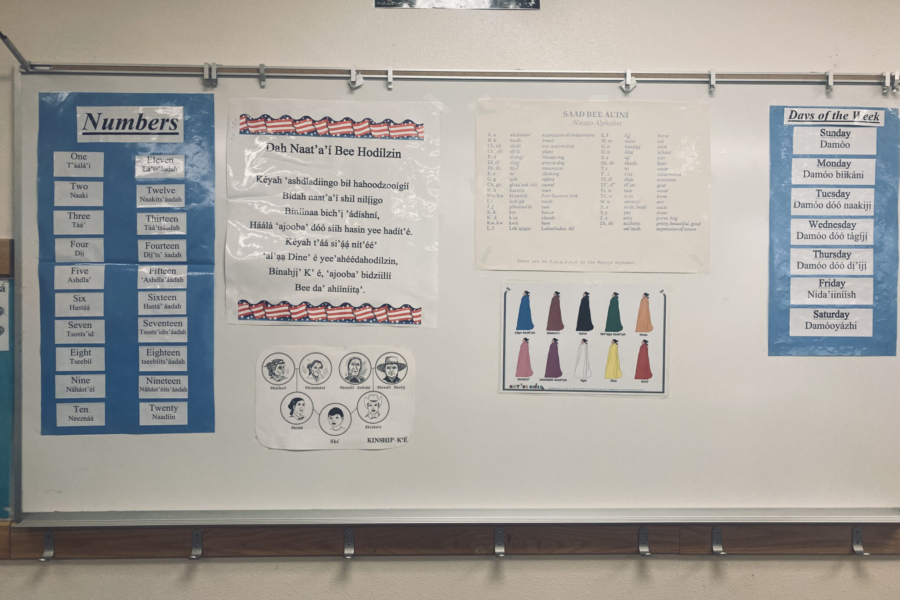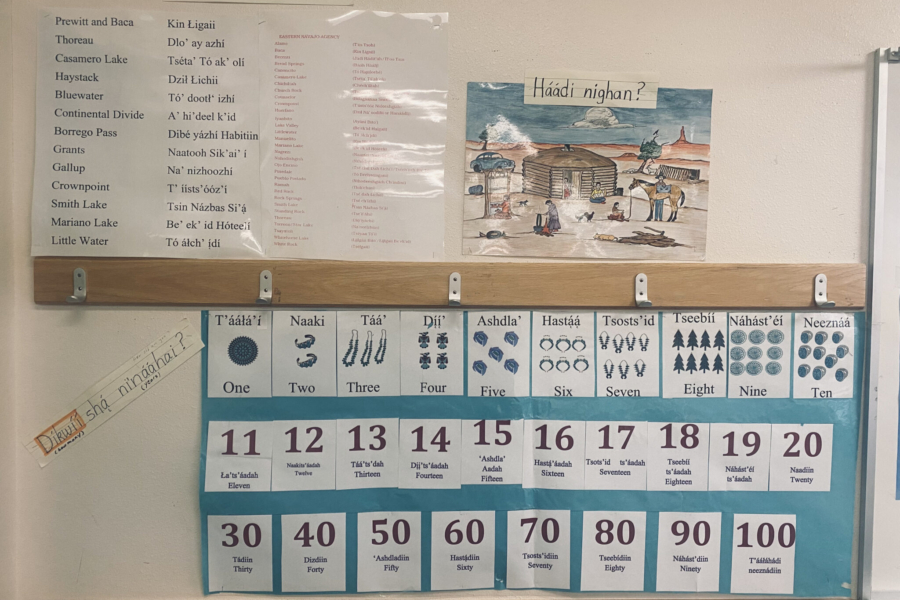Having worked directly with Children Incorporated’s U.S. Division for two years now, I have had the opportunity to visit numerous affiliated sites in all factions of our U.S. Division: Appalachia, the Inner City, the Navajo Nation, and Puerto Rico. Our most remote U.S. sites are found in the Navajo Nation. I was struck by the isolation of our affiliations in Arizona and found that the schools with which we affiliate in New Mexico are generally located even further from towns with grocery stores, medical offices, and the like than the ones in adjacent Arizona.
Visiting New MExico
Approximately half an hour by car from Gallup to the east, Grants to the west, and Crownpoint to the north, the unincorporated community of Prewitt is part of the “Checkerboard Area” of the Navajo Nation in New Mexico, which means that while it in part encompasses tribal land, it is not connected to the largest area of the Navajo Nation in the state. Prewitt is home to Children Incorporated-affiliated site Baca Dlo’ay azhi Community School, which is run by the Bureau of Indian Education (BIE), and is our newest Navajo Nation affiliation.
There is nothing quite like getting to know the selfless champions who manage our sponsorship program and special projects in person.
After an hour-and-a-half-long trek from Albuquerque to the great wide-open, I finally arrived at the school, which is only eight miles off Interstate 40. Our volunteer coordinator and the school counselor at Baca Dlo’ay azhi Community School, Jimmy, is a real jokester; when he came to the front office to meet me, he introduced himself as “John,” just to throw me off. That set the tone for what was my most enjoyable site visit ever — and his nickname Jimmy-John; I eventually followed suit and ended my day there cutting up not only with Jimmy but with other staff as well.
The relationships that we make and maintain with our volunteer coordinators mean everything to the programs teams at Children Incorporated. There is nothing quite like getting to know the selfless champions who manage our sponsorship program and special projects in person. We ask a lot of them regularly, and they are all volunteers who go above and beyond not only for our beloved sponsors and donors – but most importantly for the children that their schools serve. Our work is made possible only by those who contribute financially to our mission of offering education, hope, and opportunity to children, and the volunteers who make hope happen.
Getting to know the community
Baca Dlo’ay azhi Community School houses students from the Family and Child Education (FACE) program to the sixth grade. The FACE program was brought about by the BIE in 1990 as a complement to early childhood education, and to foster parental involvement in child education. Its tenants include supporting parents/primary caregivers as children’s first and most influential teachers; strengthening connections between families, schools, and communities; augmenting parental participation; celebrating cultural and linguistic diversity among Native American communities; and fomenting readiness for school and life.
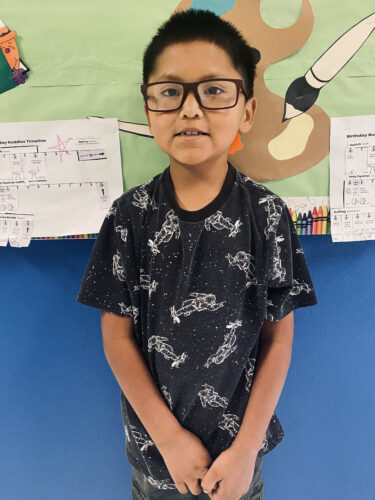
Pictured is one of the sponsored children that Kristen visited during her time in New Mexico.
Jimmy told me a lot about his community during my visit, and about the specific challenges that it faces. Some of the families that Baca Dlo’ay azhi Community School serves lack water and/or electricity in their homes, which is a great barrier to hygiene, nutrition, and learning. Many of the families live in homes where there are multiple generations sharing space; as a result, some folks have no other option than to sleep on the floor. Jimmy told me that, due to food insecurity that is exacerbated by Prewitt’s isolation from necessary resources, thirty students at his school receive food for their respective homes regularly. Additionally, alcoholism is unfortunately rampant among the school’s families and is yet another perpetual impediment to students having their basic needs met.
One of the school’s most influential partners is Americans for Native Americans, which is “Dedicated to improving the quality of life for Native Americans on the Hopi, Navajo, and Zuni Nations by providing essential goods and programs which foster self-reliance and mutual understanding” (americansfornativeamericans.org). The Children Incorporated child sponsorship program and our special projects supplement this outstanding companion, as well as Jimmy and his staff’s great care for the children that attend Baca Dlo’ay azhi Community School.
Jimmy proudly shared with me that, as a strategy to assess the day-to-day temperaments of his students, he has them do check-ins every time they approach or meet with him: “Say your name, then the truth,” he says – to which they reply with their name, age, and how they’re feeling today. Jimmy had a student demonstrate this practice with him for me so that I could witness it firsthand. Sure enough, the student knew exactly what to do after Jimmy’s prompts. Jimmy also encourages his students to practice other types of mindfulness along with deep breathing exercises to mitigate stress and stay present and focused.
Our work is made possible only by those who contribute financially to our mission of offering education, hope, and opportunity to children, and the volunteers who make hope happen.
Baca Dlo’ay azhi Community School is adorned with signs boasting encouraging phrases, such as, “Learn from your culture. It is there to help you.” Jimmy took me by the Navajo culture teacher, Mr. Begay’s, classroom, where I learned a bit about tribes and clans. Mr. Begay is of Apache descent, but his grandmother was “adopted” by the Navajo Nation. Mr. Begay’s enthusiasm was palpable, his knowledge, solid – and his sense of humor had me laughing until my belly ached, Jimmy’s humorous commentary punctuating the themes Mr. Begay addressed with the ease of a pro!
Just as our incredible volunteer coordinators are one of a kind, so too are our affiliated sites. While school communities tend to reflect the tone and challenges of the larger communities in which they are located, each school within each larger community has a culture all its own. Jimmy is an exemplary extension of an ally to his school community – and it’s almost 200 students that are better for his presence there.
***
How do I sponsor a child with Children Incorporated?
You can sponsor a child in one of three ways: call our office at 1-800-538-5381 and speak with one of our staff members; email us at sponsorship@children-inc.org; or go online to our sponsorship portal, create an account, and search for a child in that is available for sponsorship.

